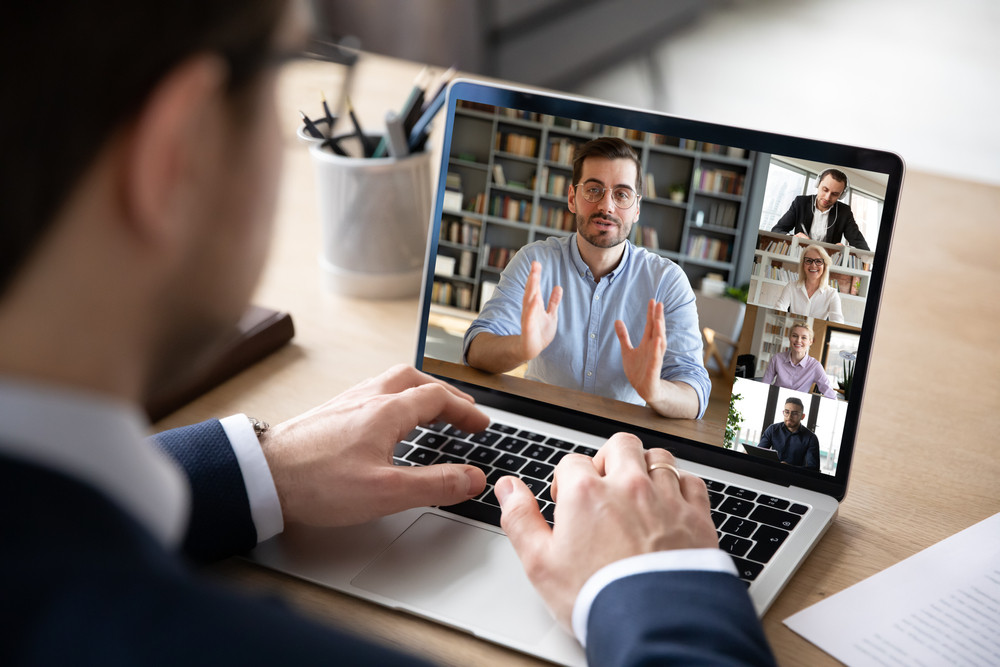
Is Virtual Participation in Community Association Meetings Here to Stay?
As Community Association attorneys, something we've been asked often lately is whether associations may hold their meetings strictly by Zoom or any other video conferencing or virtual process. The answer is Florida law does allow videoconferencing and provides the ability to do so for both members and board meetings.
For board meetings, the statute provides that directors may participate in any meeting virtually or by remote communication, including voting on board matters, and that remote communication is deemed to be “in person” participation. Therefore, board meetings can be held in person, completely virtual, or a hybrid of both. Importantly, the statute requires that the directors attending remotely must be able to be heard by everyone else attending the meeting. For virtual meetings, this is easily accomplished as all participating in the videoconferencing can hear each other when they speak. For in-person meetings, it is necessary for a two-way speaker to be utilized so that any directors participating remotely can be heard by all in attendance.
As to members meetings, Florida law also provides that members may participate remotely. In this respect, the statute requires the board to adopt guidelines and procedures to verify that each person deemed present and authorized to vote remotely, is a member or proxy holder. Once those procedures and guidelines are established, members may participate in meetings remotely, are deemed to be present “in person” at the meeting and may vote remotely.
Once the procedures and guidelines are adopted, members may participate in a meeting through Zoom or other videoconferencing methods either on their laptops, or by phone. The key is to be able to identify that the people participating are actually members or their authorized representatives (proxies) who can participate on behalf of the members. This is critical because it ensures that quorum requirements are complied with at virtual meetings.
When preparing the notice for a meeting, it is recommended that the notice specifies in advance whether the meeting is going to be strictly virtual or if it's going to be a hybrid, where some members are there in person and some are virtually attending. Then the owners know exactly how participation will take place and may plan accordingly. Also, the association should take steps to make sure that members are able to participate even if they don’t have a computer, laptop or smart phone that uses Zoom or another applicable app.
Furthermore, for virtual meetings the association should explore the ability to vote virtually, during these meetings. For instance, Zoom has a feature allowing for polls to be set. The poll may be set up for anonymous results or to indicate how each member voted. This feature not only allows for a poll, or vote, to be conducted but it also shares the results after the vote is concluded. This allows for a report to be generated showing the results of the vote. This is mandatory as the statute allowing for member virtual participation requires a record of all such member participations.
Notably, with Zoom the host of the meeting cannot participate in any voting. Therefore, it's important to remember that any board member who hosts a meeting through Zoom understands that he/she won't be able to participate in any virtual votes during the meeting. We often recommend that a manager be the host as the manager is typically not a member of the association.
In conclusion, videoconferencing is an easy way to be able to address voting on member issues such as governing document amendments, and HOA elections, although there are still some challenges in this latter regard. Virtual meetings are beneficial to all as they allow for greater member participation, and the ability to vote and take polls during the meeting. It is likely this is the way meetings will be handled in the future, beyond any pandemic or other circumstances where the board and members cannot get together to conduct association business in person. We strongly recommend that you consult with association counsel prior to scheduling, noticing and holding virtual meetings.

Michael Ungerbuehler has been helping community associations across the State of Florida with their legal needs for more than 20 years. To learn more about Michael or to work with him click here.
When you subscribe to the blog, we will send you an e-mail when there are new updates on the site so you wouldn't miss them.

Sachs Sax Caplan, P.L. is proud to be recognized by The Florida Bar for our commitment to hiring and developing Board Certified Attorneys.

